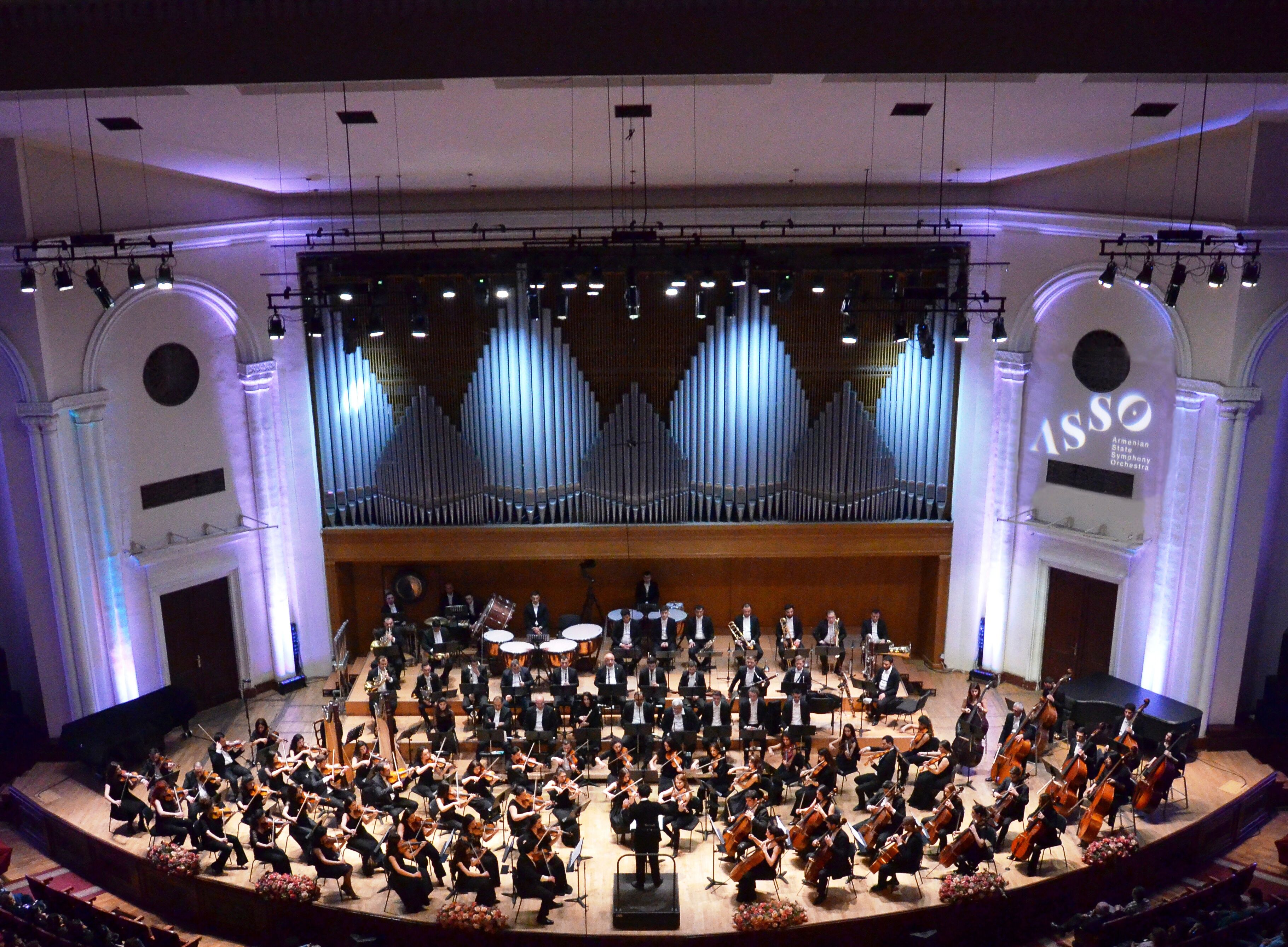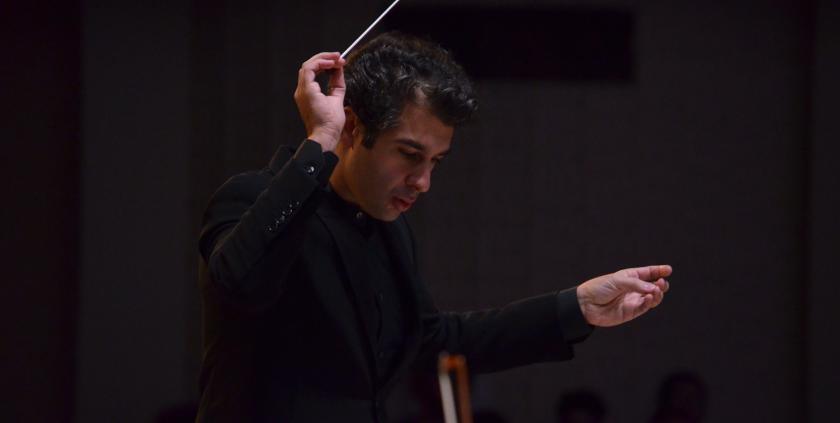We’re touring across Europe in January 2020, visiting five countries to perform eight concerts with the world-class violinist Maxim Vengerov as our leading soloist. The tour has been organized by the European Foundation for Support of Culture.
As Artistic Director and Principal Conductor of the Armenian State Symphony Orchestra, I’ve always sought to combine the eastern and western musical traditions together when programming concerts for the orchestra, whilst also presenting new music to audiences.
On the European Tour, the ASSO and Vengerov will pair Bruch’s heartfelt First Violin Concerto and Ravel’s enchanting Tzigane with new, riveting and emotive works by Alexey Shor, the American-Maltese composer in residence with the orchestra this season, presenting either Barcarolle or Lonely Sail dependent on each concert. The ASSO will also give the European premiere of Armenian composer John Ter-Tatevosian’s Seconnd Symphony “The Fate of Man". This intense piece tells the story of the brutal conditions a truck driver had to endure when he was forced to join the army and sent to a concentration during World War Two, and marvels at humanity’s ability to push on through catastrophic experiences.
My reason for combining the eastern and western musical traditions is simple; I am led by an impulse to share great music with audiences and keep our wonderful collective arts culture thriving. The by-product of this is that music and the universally shared feelings it sparks in each of us reaches across cultures, resonating with us and reminding us of our interconnectedness. Consuming music from different musical traditions can only ever be an enriching and enlightening experience; I admire Aram Khachaturian’s Second Symphony from the eastern tradition as much as I do Gustav Mahler’s Ninth from the western tradition. Both have a profound effect on me and cause me to reflect.  To share great music with audiences, I aim to highlight the musical strengths of both the eastern and western traditions. The western composers have always been the pioneers in the classical music world. As such the western music traditions are universal both for creators and performers, and even the Armenian work we present is modelled on these traditions. This is because shortly before the Soviet Union came into being, there was a cultural revolution in the east, resulting in many eastern composers being inspired by the western traditions. For instance, we have monody music in the east which originated in the west. Yet whilst the eastern musical traditions progressed in accordance with the west’s, new and original music styles began to emerge across different parts of the world in the east. As such, the musical creations from Armenia are unique in their harmony and the emotion they convey. With Armenian music specifically, we want to give our audiences the opportunity to experience distinctive, unparalleled music that they will not hear elsewhere.
To share great music with audiences, I aim to highlight the musical strengths of both the eastern and western traditions. The western composers have always been the pioneers in the classical music world. As such the western music traditions are universal both for creators and performers, and even the Armenian work we present is modelled on these traditions. This is because shortly before the Soviet Union came into being, there was a cultural revolution in the east, resulting in many eastern composers being inspired by the western traditions. For instance, we have monody music in the east which originated in the west. Yet whilst the eastern musical traditions progressed in accordance with the west’s, new and original music styles began to emerge across different parts of the world in the east. As such, the musical creations from Armenia are unique in their harmony and the emotion they convey. With Armenian music specifically, we want to give our audiences the opportunity to experience distinctive, unparalleled music that they will not hear elsewhere.
Whilst we do strive to combine diverse music cultures, we are always very careful in our approach, as it can be quite tricky to cross them over. We always place the experience of the audience first, and submerging them in a deluge of stylistically different works, however perfectly realised by the orchestra, can often exhaust them. As a result, we choose works that are harmonious with each other.
I am delighted to be presenting an uplifting mix of world-famous western works and impassioned Armenian works at the Barbican Hall tonight as part of our European Tour. In the same way that I approach assembling programmes, I have curated the concerts in such a way that ensures the overall effect is a delicate balance of differing styles. We’re confident that with this fervent yet harmonious programme, we will succeed in transmitting the right amount of energy to the audience. Not only this, but we will leave them feeling in awe of the immense contributions both the east and west have made over the centuries to our one great art form - music.














Add comment